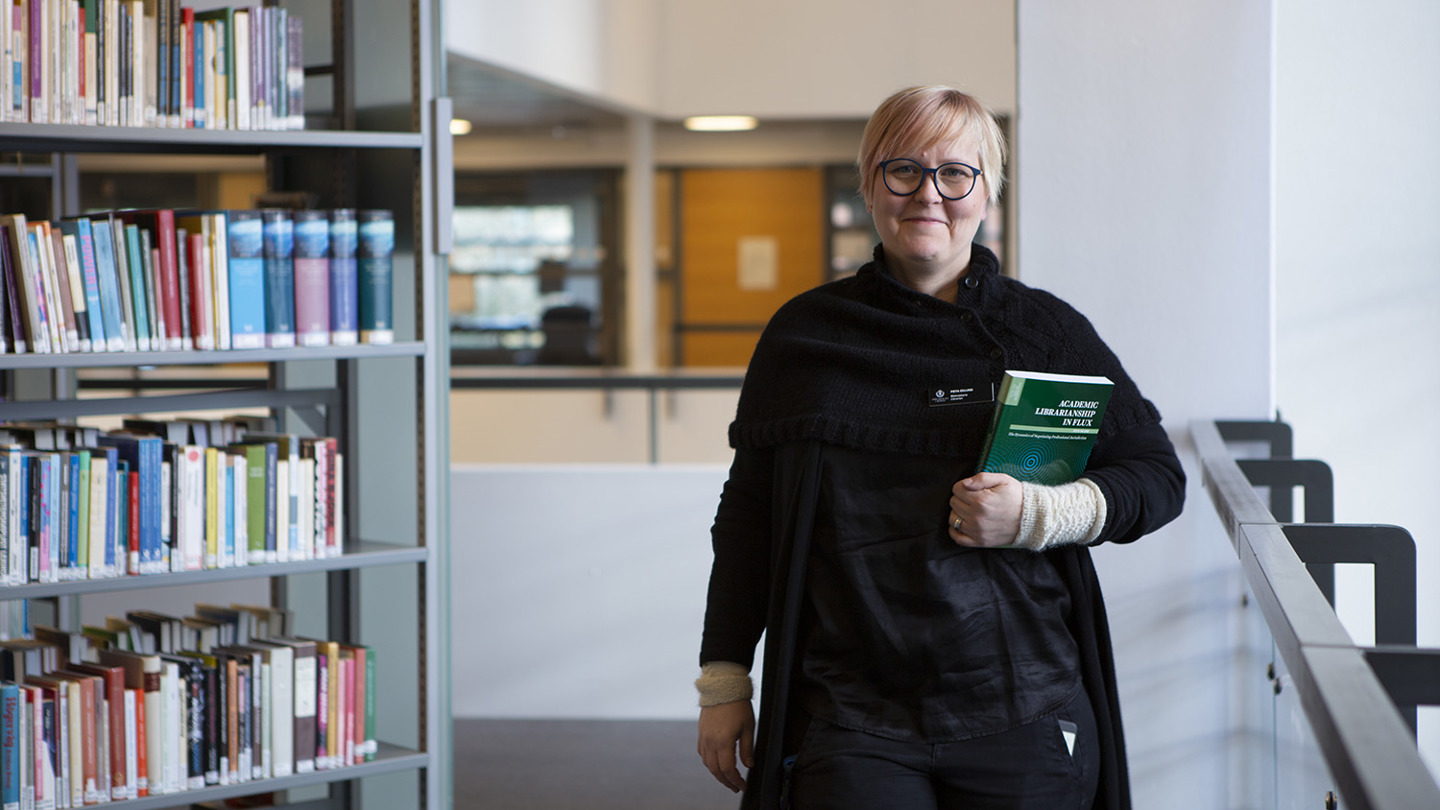The librarian – a support in the research process
2022-03-15

In recent years, the task of making information available has grown. Research data can be made openly available and publication in scientific journals has gained importance, as publications partly determine the amount of money given for further research. One consequence of this has been a rise in the number of predatory journals, which librarians can help researchers to identify. These are some of the factors behind the fact that university libraries, which have during recent decades been mostly for students, are now starting to work more and more with research services.
Pieta Eklund began her doctoral studies in 2014, after working as a librarian at the University of Borås for four years. In her doctoral thesis, she has studied the research services at a university library with three faculty libraries. The aim has been to contribute knowledge and a deeper understanding of the negotiation or tug-of-war that is constantly taking place about the librarian's professional jurisdiction, i.e. what lies within the librarian's work, role, and area of competence in relation to research. The results show the opportunities and challenges for developing library services for researchers.
“In the 1980s, the relationship between different professions was described in terms of a battle in which the different professional groups lose or win territories. What I could see in my interviews is that it's more of a collaboration, at least between librarians and researchers," said Pieta Eklund.
Uncertainty about each other's areas
The librarians interviewed talked about a certain uncertainty in relation to each other’s professions. Where librarians sometimes doubted their competence in research, and where researchers also did not know what librarians could contribute.
“It's impossible to know everything about each other's fields, so it's more about the librarian being able to push when they see they can add something, and being brought in by the researcher when they need the librarian's expertise. My thesis shows how important it is to communicate and market your own activities in order to approach the other professions,” said Pieta Eklund.
The doctoral thesis describes several obstacles and opportunities for research services. For example, librarians need to be included in the research process. However, the faculty libraries included in the thesis were not represented in the faculty management. This meant a gap in communication at management level, which can lead to the role, support, and benefits of the library being invisible to researchers and university and faculty management. Another obstacle was that the library managers did not clearly support the librarians in their work, for example by allocating time in their staff positions to support the researchers.
Invisible work
Some of the librarians' work is invisible: Pieta Eklund gave an example from her own workplace:
“When a researcher gets a hit on a publication via Google Scholar, they can click through to read the full-text article. This is possible because we at the library have made the article available.”
Since she started working as a librarian 12 years ago, she feels that the role and support for researchers has changed - and grown.
“There are more requests to help with searches, and we can be invited to research groups to discuss, for example, how they can succeed with their publication. There is more going on now and there are several of us working with research services," said Pieta Eklund.
How would you describe the position of librarians, based on your thesis?
“The position of librarians is constantly changing; it is in constant flux. There are opportunities to expand our role in research, but there are also constraints to doing so. We have many other tasks and are also individuals; not all of us are interested in working with research services.”
As a newly-minded doctorate older – what is it like to come back to your "regular" job as a librarian?
“It feels quite good, it will be nice to come back to the library and have colleagues to work with. Writing a thesis can be lonely work, even if many people contribute to it. Many researchers were glad to hear that I as a librarian was working towards a doctorate. I'm also excited to explore how we at the library can benefit from my having a doctorate. My time as a doctoral student has given me practical experience in research, for example in managing research data. Now I realise how complicated it really is. Before, I thought it couldn't really be that difficult," said Pieta Eklund, laughing.
Pieta Eklund defended her doctoral thesis on 18 January at the Swedish School of Library and Information Science, University of Borås, with the thesis Academic Librarianship in Flux: The dynamics of negotiating Professional Jurisdiction. Her principal supervisor was Elena Maceviciute, Professor of Library and Information Science. Her assistant supervisor was Nasrine Olson, Senior Lecturer in Library and Information Science.
Read more
Lina Färm. Translation by Eva Medin
Lina Färm

